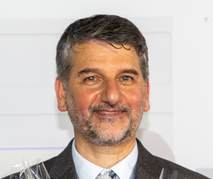Hybrid Event- Complex Electronics Reliability and Life Modeling Based on Physics of failure Simulation
Sponsor: IEEE Boston/Providence/New Hampshire Reliability Chapter
Please visit https://r1.ieee.org/boston-rl/
Host: IEEE Boston/Providence/New Hampshire Reliability Chapter
Complex electronics systems and components are subject to various stressors and uncertainties that can affect their reliability and performance over time. Traditional reliability assessment methods, such as statistical models, MTBF estimations, and testing, may not be able to capture the complex interactions and dependencies among the system elements and the failure mechanisms. Physics of failure is an alternative approach that uses physics-based modeling and simulation to understand the root causes of failure, such as device degradation, fatigue, fracture, wear, and corrosion, and to predict the system reliability and life expectancy under different operating conditions and environments. It can also estimate the remaining useful life and the state of degradation of the system. Physics of failure can also incorporate probabilistic methods to account for the uncertainties and variabilities in the system parameters, materials properties, loading conditions, and failure mechanisms. In this presentation, we will present the foundation and methods of physics of failure-based tools for reliability modeling of complex electronics systems and components and demonstrate how they can be applied to various domains. We will also discuss the advantages and limitations of the physics of failure-based reliability modeling and compare it with other reliability assessment methods. The capabilities of Ansys Sherlock will be demonstrated for electronics physics of failure.
Date and Time
Location
Hosts
Registration
-
 Add Event to Calendar
Add Event to Calendar
Loading virtual attendance info...
- Lincoln Laboratory
- 244 Wood St
- Lexington, MA 02421, Massachusetts
- United States
- Building: Main Cafeteria
- Contact Event Host
-
Michael W. Bannan, Chair
IEEE Boston/Providence/New Hampshire Reliability Chapter
- Starts 19 November 2023 06:00 AM UTC
- Ends 11 December 2023 10:30 PM UTC
- No Admission Charge
- Menu: Dietary Restrictions (please note in survey answers)
Speakers
 Mohammad Pourgol of Teradyne
Mohammad Pourgol of Teradyne
Complex Electronics Reliability and Life Modeling Based on Physics of failure Simulation
Complex electronics systems and components are subject to various stressors and uncertainties that can affect their reliability and performance over time. Traditional reliability assessment methods, such as statistical models, MTBF estimations, and testing, may not be able to capture the complex interactions and dependencies among the system elements and the failure mechanisms. Physics of failure is an alternative approach that uses physics-based modeling and simulation to understand the root causes of failure, such as device degradation, fatigue, fracture, wear, and corrosion, and to predict the system reliability and life expectancy under different operating conditions and environments. It can also estimate the remaining useful life and the state of degradation of the system. Physics of failure can also incorporate probabilistic methods to account for the uncertainties and variabilities in the system parameters, materials properties, loading conditions, and failure mechanisms. In this presentation, we will present the foundation and methods of physics of failure-based tools for reliability modeling of complex electronics systems and components and demonstrate how they can be applied to various domains. We will also discuss the advantages and limitations of the physics of failure-based reliability modeling and compare it with other reliability assessment methods. The capabilities of Ansys Sherlock will be demonstrated for electronics physics of failure.
Biography:
Dr. Mohammad Pourgol is a safety/reliability analyst in multidisciplinary systems analysis with Teradyne and an Associate Professor (adj) of Mechanical engineering at the University of Maryland. He previously held the position of Associate Professor of Reliability Engineering at Sahand University of Technology (SUT). Dr. Pourgol earned his Ph.D. in Reliability Engineering from the University of Maryland (UMD). With over 20 years of work experience, his career includes industrial application, research, and teaching in safety applications and reliability engineering at various institutions, including Teradyne Semiconductor, Johnson Controls, Sahand University of Technology, FM Global, Daikin Comforts, UMD, Massachusetts Institute of Technology (MIT). Dr. Pourgol is an IEEE Senior Member, an elected ASQ Fellow, and ASME Fellow. He also served as the ASME Safety Engineering and Risk/Reliability Analysis Division (SERAD) Chair from 2017 to 2022. Additionally, he is a registered Professional Engineer (PE) in the State of Massachusetts and holds certifications as a reliability engineer (ASQ CRE), Six Sigma Black Belt (CSSBB), and Manager of Quality/Organization Excellence (ASQ CMQ/OE). Dr. Pourgol has authored over 160 papers in archival journals and peer-reviewed conferences on his research and has been an invited/Keynote Speaker at numerous conferences and webinars. He has also filed one US patent, and his efforts have been recognized with several awards. Currently, Dr. Pourgol serves as the Associate Editor for the ASME-ASCE Journal of Risk and Uncertainty in Engineering Systems, both Part A: Civil Engineering and Part B: Mechanical Engineering.
Agenda
5:00 PM Networking
5:30 PM Technical Presentation
7:15 PM Questions and Answers
7:30 PM Adjournment
The meeting is open to all. You do not need to belong to the IEEE to attend this event; however, we welcome your consideration of IEEE membership as a career enhancing technical affiliation.
There is no cost to register or attend, but registration is required.
For in-person attendees, masks are optional. Please feel free to wear one if you wish!
Media
| Mohammad Pourgol 13 Dec 2023 | 2.76 MiB |

